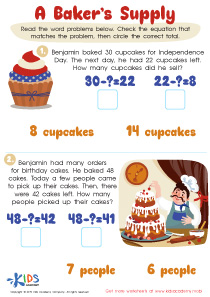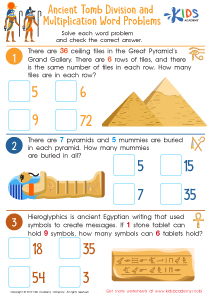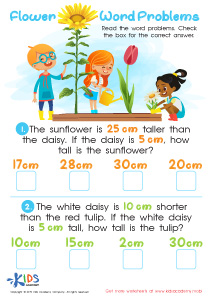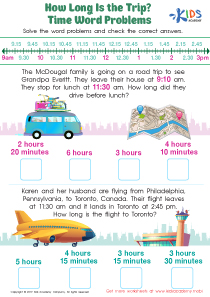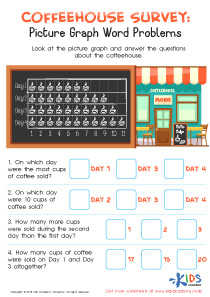Easy Two-step Word Problems Worksheets for Ages 3-5
5 filtered results
-
From - To
Introducing our Easy Two-step Word Problems worksheets, perfectly tailored for young learners aged 3-5 years! These engaging and educational homeschool downloadable worksheets are designed to gently introduce your child to the basics of problem-solving using simple, age-appropriate language and fun graphics. Each worksheet encourages critical thinking and reasoning in two simple steps, helping to build a strong foundation in basic math and logic skills. Ideal for homeschool settings, these worksheets are easily accessible and provide a hands-on approach to learning that will keep your little ones entertained and educated. Dive into early math with confidence and ease!
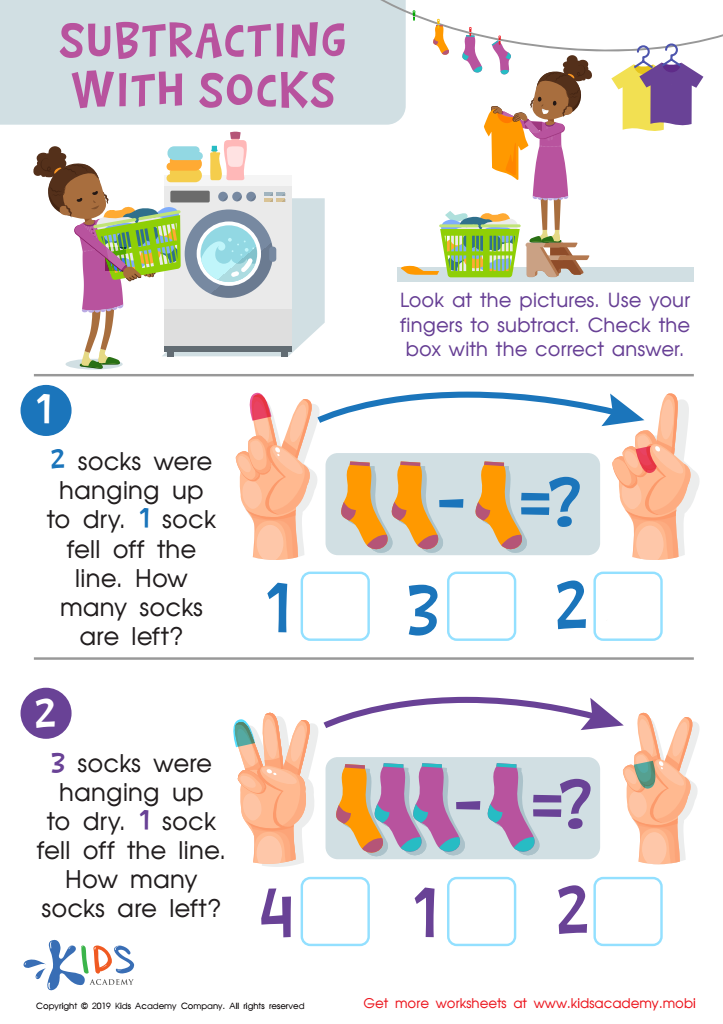

Subtracting Socks Worksheet


Counting Seedlings Worksheet
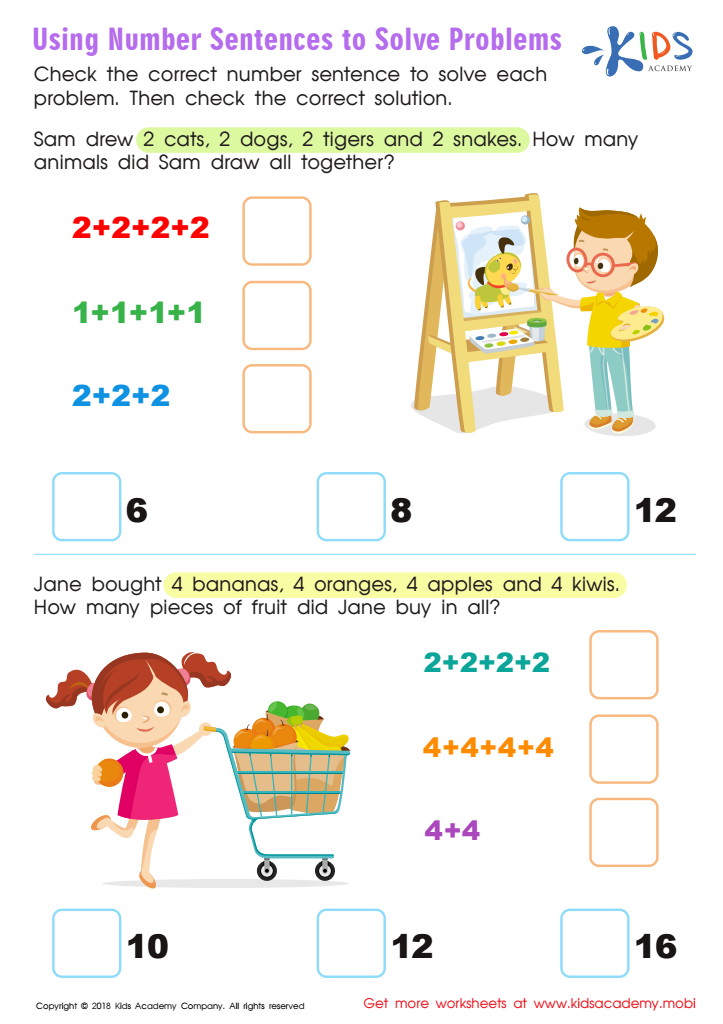

Using Number Sentences to Solve Problems Worksheet
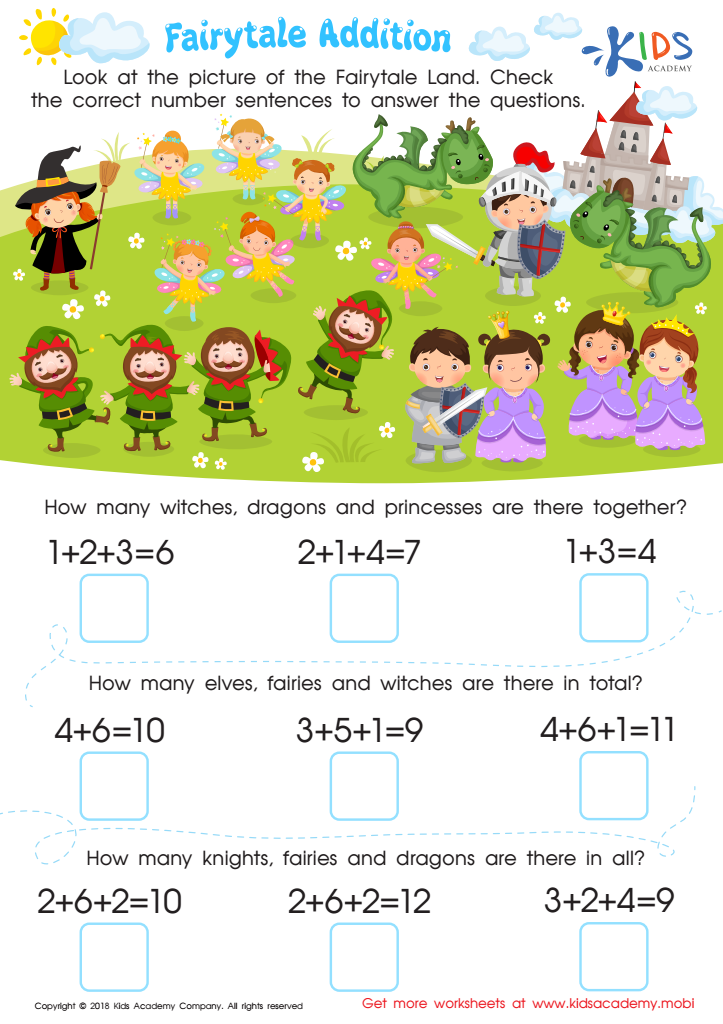

Fairytale Addition Worksheet
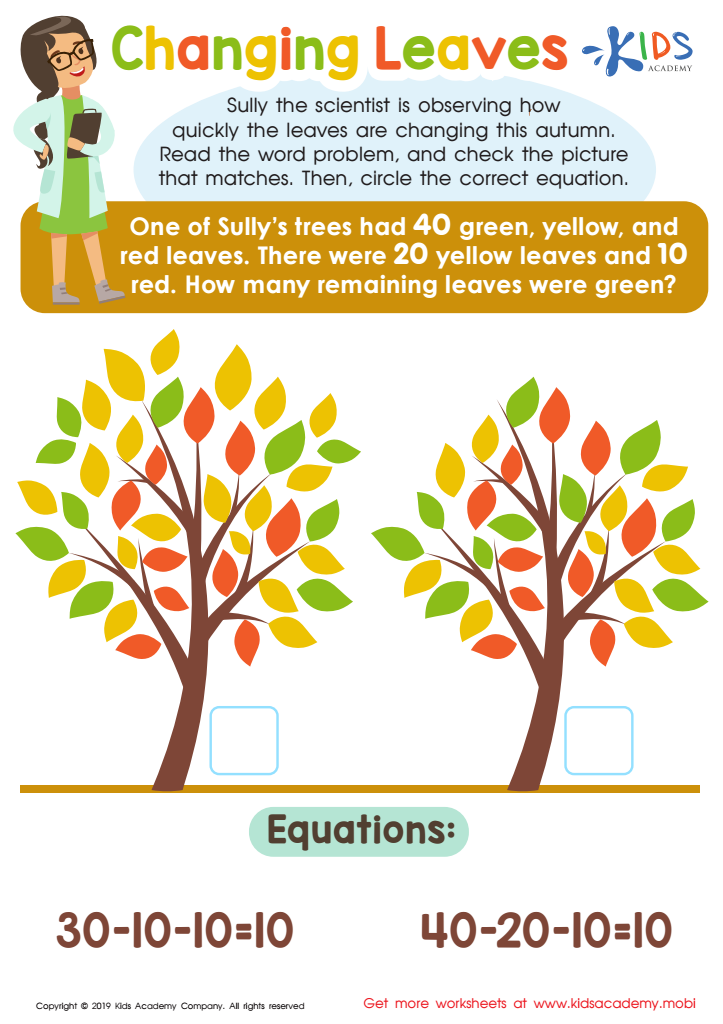

Changing Leaves Worksheet
The Value of Easy Worksheets on Two-Step Word Problems for Young Learners
Easy worksheets on two-step word problems serve as a pivotal educational tool, particularly for young children aged 3-5 years, who are at a critical stage of cognitive and numerical skill development. These worksheets are not only an essential component of early learning curriculums but also a significant resource for those engaged in homeschooling. The integration of such materials into daily "homeschool homework sheets" provides a structured way for young learners to build foundational mathematical skills in a manner that is both engaging and manageable.
Two-step word problems, though simplified for young minds, are designed to challenge children to think sequentially and apply basic mathematical operations like addition and subtraction. The word problems present scenarios that require a child to perform two sequential operations to arrive at the answer. For instance, a problem may first ask how many apples are in one basket and how many in another, and then require the child to find the total number of apples. This layered approach to problem-solving encourages critical thinking and helps develop a child's ability to follow multi-step directions, an important skill both in academic contexts and daily life.
For homeschooling parents, using easy worksheets on two-step word problems offers multiple benefits. Firstly, these worksheets can be seamlessly integrated into "homeschool homework sheets," allowing parents to track and guide their child’s progress effectively. Given that homeschooling often involves a tailored educational approach, these worksheets can be chosen based on the child's individual learning pace, ensuring that the problems neither overwhelm nor under-stimulate the young learner.
Moreover, the structured nature of these worksheets makes them an excellent tool for routine learning. Regularly incorporating these problems into daily learning sessions helps children develop a habit of engaging with numbers and terms, steadily boosting their confidence and competence in dealing with basic mathematical concepts. This routine practice is crucial at an early age, as it lays a solid foundation for more complex mathematical learning in later years.
Additionally, two-step word problems are beneficial in enhancing reading comprehension and numerical literacy. As children read through the problems, they learn to identify key information and discern what the question requires of them. This skill of parsing out relevant data from a textual context is vital and extends beyond mathematics into other areas of study and everyday situations.
Furthermore, these worksheets are typically designed with young children in mind, featuring colorful illustrations and themes that align with their interests. Such engaging content not only keeps the child interested but also helps them relate the mathematical problems to real -world scenarios, enhancing their understanding and retention of concepts. For example, problems might include scenarios about sharing toys or dividing snacks, which are both familiar and relevant to their daily experiences. This relatability makes learning feel more like a fun activity rather than a chore, thereby cultivating a positive attitude toward education.
Incorporating interactive elements, such as drawing solutions or using physical objects to represent problem scenarios, can make these worksheets even more effective. Homeschooling allows for this kind of hands-on learning, where children can use toys, coins, or other household items to visually solve problems, making abstract concepts tangible. This method not only aids in understanding but also in memory retention, as children are more likely to remember what they have actively engaged with.
For parents, these worksheets offer a clear and measurable way to assess their child's developmental progress in mathematics. They can observe how their child approaches problem-solving, tracks their logical reasoning, and identifies areas that need more attention or a different approach. This ongoing assessment is crucial for adapting teaching strategies to fit the child’s evolving needs, ensuring that homeschooling remains a dynamic and responsive educational environment.
Lastly, easy worksheets on two-step word problems prepare children for future academic challenges. By mastering these foundational problems, children build self-assurance and readiness to tackle more advanced mathematical concepts as they progress through their educational journey. The skills learned through these worksheets—such as problem-solving, critical thinking, and sequential processing—are universally applicable, setting children up for success across various learning areas beyond mathematics.
In conclusion, easy worksheets on two-step word problems are extraordinarily useful tools in the homeschooling context. They not only reinforce core mathematical skills but also foster a broader range of cognitive abilities that are critical for young learners. By integrating these worksheets into daily "homeschool homework sheets," parents can ensure a comprehensive, engaging, and effective approach to early childhood education, paving the way for lifelong learning and success.
 Assign to the classroom
Assign to the classroom
